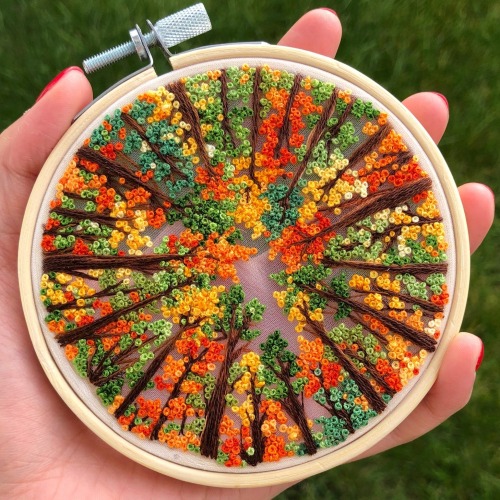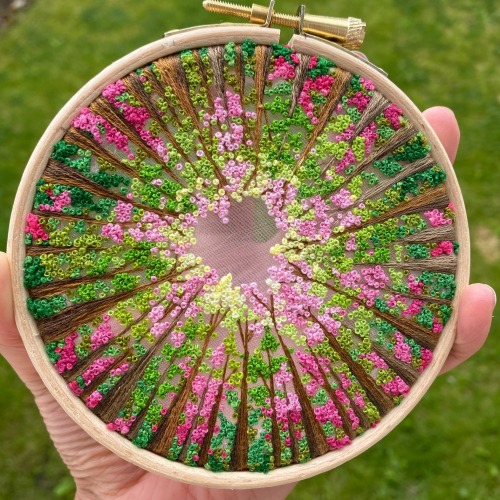Underhill2 - Underhill2

More Posts from Underhill2 and Others










SewBeautifulx on Etsy

After making a grand total of 11 cheatsheets since starting university less than a year ago (I know, my uni is weird), I wanted to share some of my tips and tricks for making the most effective cheatsheet for your needs! They’re a hassle to make, but depending on how you make yours, it could either be an incredibly useful resource or just an extra sheet of paper on your desk.
(By “cheatsheet”, I mean a typically printer paper-sized memory aid, usually handwritten, that is allowed to be brought into an exam.)

1. You don’t need to write small, nor do you need to write a lot.
Some people go out of their way to buy 0.1mm pens to cram everything they can onto a cheatsheet. But okay, hear me out: unless you plan on using your cheatsheet to study (more on this later), what is the point of writing as much as you can? It is super difficult to find the exact piece of information that you need in the stressful environment of an exam, especially when you’ve written in the equivalent of size 4 font and your page is cluttered with information you definitely know . And honestly, for most exams, it’s a waste of time trying to look at your cheatsheet. Just put down whatever you’ll definitely need; the rest will only slow you down or overwhelm you.
2. Use colours, or at least find some way to keep it organized.
Once again, you need to spend as little time as possible looking at your cheatsheet in an exam. If the exam allows cheatsheets, the class probably has something else to up the difficulty level of exams. In my experience, it’s usually either application questions or a time crunch, sometimes both. So, make your cheatsheet efficient. Colour-code it so you know what to look for in order to find any given piece of information. Find some sort of format, so that you also know where exactly to look.
3. Don’t wait until last minute to make it. If it comes to that point, just put down the major points and sleep.
There are so many reasons why you shouldn’t do this. Just trust me, my lowest exam marks are from exams where I made a cheatsheet the night before. You shouldn’t be staying up the night before your exam. Copying the textbook onto a sheet of printer paper isn’t effective studying. Most importantly, your cheatsheet becomes so much more effective when you’ve actually done practice exams with it. Or else, how would you know how well it actually functions and what else you should add?
4. It doesn’t need to be perfect.
Please don’t spend too much time on your cheatsheet. Obviously, interpret this advice based on practice exams and the scope of whatever course you’re taking, but don’t get to a point where you’re relying on your “perfect” cheatsheet to pass the exam. Instead, spend your time studying the material and question formats so that you almost don’t need your cheatsheet. No matter how informative or detailed your cheatsheet is, it won’t matter if you don’t have time to use it during the exam, or if you haven’t done enough practice so you don’t know how to format the cheatsheet’s information.
5. Don’t worry about what everyone else is doing.
I think this goes without saying for practically anything, really. Just do you. If the prof says you’re allowed a single piece of printer paper, front and back, it doesn’t mean that you need to fill that. Nor does it mean that you should be intimidated when you walk into the exam and see that you’re the only person who hasn’t filled up your cheatsheet completely. Do whatever you need to succeed. If spending a few extra hours cramming information onto your cheatsheet won’t help you, then don’t do that. If it will, then don’t let me and my opinions stop you.

1. For the stuff that you actually don’t know and isn’t worthwhile to memorize
This is pretty obvious, but you should prioritize the stuff that you actually don’t know and is too difficult to memorize. For example, the 20 amino acids for Biology.
2. Diagram compilation
Personally, I think that the most useful thing you can do with your cheatsheet is to add diagrams and charts. They are the easiest thing to find on your cheatsheet. Also, diagrams are able to sum up a whole list of details, so you don’t need to worry about missing something. It is always useful to refer to your diagrams for inspiration!
3. Checklist
What are the three points you need to include to describe a histogram? What steps does the prof want you to do to show autosomal dominance? If you are someone who often loses marks because of missing details or the way you format your answers, your cheatsheet can function as a checklist. Write down exactly what you need to address to get full marks on certain types of questions.
4. Personalized formula sheet
If you are anything like me (ie. I am so afraid of Math that I chose not to major in Biochemistry just so I don’t have to do Calc III), then writing out some formulas in the way that you like them written might be useful, even if you are given a formula sheet. It’s a comfort thing.
5. Study guide
As a heads up, this is the only situation where I would condone writing as much as possible on your formula sheet. If you’re the type of person who studies by copying out your notes (ie. you memorize things by writing them out), then you might as well kill two birds with one stone and just copy your notes onto your cheatsheet. But, then again, your cheatsheet will probably be less functional during the exam, so do this at your own discretion.

Here are two of my own cheatsheets, to illustrate some of my points. The first one is for Biology, the second one is for Statistics.


I don’t keep a consistent colour code, but generally, red is for categories or units, blue is for definitions or important terms, and blue underline is for things I commonly forget or refer to (ie. the 4 factors affecting membrane fluidity). The units follow the order that we learned them in class. Although I tend to write small and there is a lot more information than strictly necessary, I can easily find anything I’m looking for.
Here’s the bottom line: do whatever is the most useful for you!! These are just a few things that have worked for me and some people around me, but do whatever will help you succeed.
Happy studying, everyone!
a list of simple yet beautiful things to live for:
the feeling of sunlight on your skin
the smell of pastries as you pass by a bakery
being wrapped up in a blanket with a cup of hot chocolate in your hands on a cold night
holding hands with the person you can’t imagine living without
discovering a new favorite song and listening to it on repeat
having a relaxing bath after a long exhausting day
secretly admiring a beautiful stranger you saw on the train
concept:
it’s raining super hard outside, and i’m spending the night at your place. it’s dark in your apartment and we lay there together, cuddling, wrapped in blankets. i can’t sleep, but i find myself at peace listening to the rain and your heart beats.
when someone loves you - really loves you - treat them gently. text your best friend back when you can. tell your mother you noticed her haircut and that she was right about that recipe. tell your grandfather that the boats in his bottles are the best things you’ve ever seen. be good to the people who are good to you. it’s the least you can do.
for old times sake is actually such a heartbreaking and beautiful sentiment. let’s do it for the love that used to be here!! it is reason enough!!
look: the right people will get it. the right people will see you and appreciate you for the person that you are. the right people won’t require you to dilute, censor, or edit yourself in order to be worthy of their time and affection. you don’t need to waste your time on people who are committed to misunderstanding you
Folks with this whole "you're old once you hit 25" mentality are just buying into a repackaged "you need to have your life figured out by 18 and if you're not successful by 22 you're a failure" load of shit. Like....bruh, life doesn't end at 25. Idk how to tell you that the time limit you're silently imposing on yourself and your peers is largely responsible for your dissatisfaction with your life. Stop living your life like happiness has an expiration date. It doesn't.
-
 crookedthumb liked this · 1 week ago
crookedthumb liked this · 1 week ago -
 midnightflowerzz liked this · 1 week ago
midnightflowerzz liked this · 1 week ago -
 whimsilica reblogged this · 1 week ago
whimsilica reblogged this · 1 week ago -
 kaisaee reblogged this · 1 week ago
kaisaee reblogged this · 1 week ago -
 kaisaee liked this · 1 week ago
kaisaee liked this · 1 week ago -
 leofwines liked this · 1 week ago
leofwines liked this · 1 week ago -
 lilianamariabaker reblogged this · 1 week ago
lilianamariabaker reblogged this · 1 week ago -
 bttryasid liked this · 1 week ago
bttryasid liked this · 1 week ago -
 lilianamariabaker liked this · 1 week ago
lilianamariabaker liked this · 1 week ago -
 ostensibly-shoelace reblogged this · 1 week ago
ostensibly-shoelace reblogged this · 1 week ago -
 ostensibly-shoelace liked this · 1 week ago
ostensibly-shoelace liked this · 1 week ago -
 irinamitr liked this · 1 week ago
irinamitr liked this · 1 week ago -
 petedavis64 liked this · 1 week ago
petedavis64 liked this · 1 week ago -
 invokingbees reblogged this · 1 week ago
invokingbees reblogged this · 1 week ago -
 teakettledoll liked this · 1 week ago
teakettledoll liked this · 1 week ago -
 pearly-dewdropz reblogged this · 1 week ago
pearly-dewdropz reblogged this · 1 week ago -
 moodyappolo liked this · 1 week ago
moodyappolo liked this · 1 week ago -
 medievaltradesperson reblogged this · 1 week ago
medievaltradesperson reblogged this · 1 week ago -
 cyklyd liked this · 1 week ago
cyklyd liked this · 1 week ago -
 marshroomillustration liked this · 1 week ago
marshroomillustration liked this · 1 week ago -
 geekgirl1996 reblogged this · 1 week ago
geekgirl1996 reblogged this · 1 week ago -
 nunyabiznooz liked this · 1 week ago
nunyabiznooz liked this · 1 week ago -
 chvrchburner reblogged this · 1 week ago
chvrchburner reblogged this · 1 week ago -
 chvrchburner liked this · 1 week ago
chvrchburner liked this · 1 week ago -
 mwahkazu liked this · 1 week ago
mwahkazu liked this · 1 week ago -
 jesusisranthru reblogged this · 1 week ago
jesusisranthru reblogged this · 1 week ago -
 f1shk1t liked this · 1 week ago
f1shk1t liked this · 1 week ago -
 ghostslazy liked this · 1 week ago
ghostslazy liked this · 1 week ago -
 irkthepurists liked this · 1 week ago
irkthepurists liked this · 1 week ago -
 ashes-0f-r0ses liked this · 1 week ago
ashes-0f-r0ses liked this · 1 week ago -
 mynameisshift reblogged this · 1 week ago
mynameisshift reblogged this · 1 week ago -
 lordofthesoups reblogged this · 1 week ago
lordofthesoups reblogged this · 1 week ago -
 lunaryse liked this · 1 week ago
lunaryse liked this · 1 week ago -
 arctic-archie liked this · 1 week ago
arctic-archie liked this · 1 week ago -
 upwards-garbage-can reblogged this · 1 week ago
upwards-garbage-can reblogged this · 1 week ago -
 upwards-descent liked this · 1 week ago
upwards-descent liked this · 1 week ago -
 garlichampter liked this · 1 week ago
garlichampter liked this · 1 week ago -
 fleapit liked this · 1 week ago
fleapit liked this · 1 week ago -
 frog-shaped-biscuits liked this · 1 week ago
frog-shaped-biscuits liked this · 1 week ago -
 thetygre reblogged this · 1 week ago
thetygre reblogged this · 1 week ago -
 atimewillcomeforsinging reblogged this · 1 week ago
atimewillcomeforsinging reblogged this · 1 week ago -
 like-tears-in-rain-storms liked this · 1 week ago
like-tears-in-rain-storms liked this · 1 week ago -
 obliviousmelon liked this · 1 week ago
obliviousmelon liked this · 1 week ago -
 mydirtyvalentine reblogged this · 1 week ago
mydirtyvalentine reblogged this · 1 week ago -
 mydirtyvalentine liked this · 1 week ago
mydirtyvalentine liked this · 1 week ago -
 sickestpuppy liked this · 1 week ago
sickestpuppy liked this · 1 week ago -
 kitsunebite reblogged this · 1 week ago
kitsunebite reblogged this · 1 week ago -
 kitsunebite liked this · 1 week ago
kitsunebite liked this · 1 week ago -
 nikatheotter reblogged this · 1 week ago
nikatheotter reblogged this · 1 week ago -
 maxwellkosmopilit reblogged this · 1 week ago
maxwellkosmopilit reblogged this · 1 week ago


